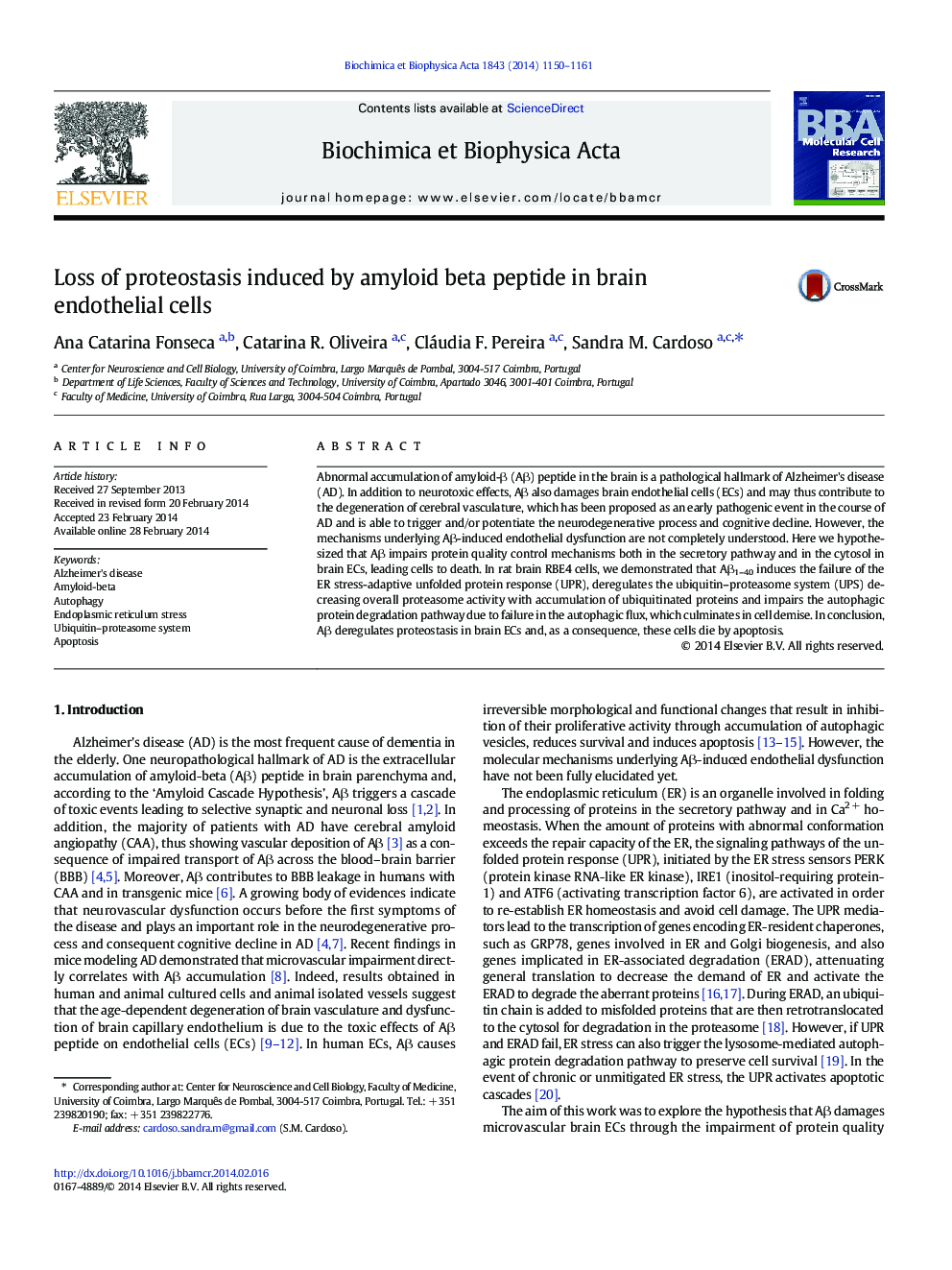| Article ID | Journal | Published Year | Pages | File Type |
|---|---|---|---|---|
| 10802164 | Biochimica et Biophysica Acta (BBA) - Molecular Cell Research | 2014 | 12 Pages |
Abstract
Abnormal accumulation of amyloid-β (Aβ) peptide in the brain is a pathological hallmark of Alzheimer's disease (AD). In addition to neurotoxic effects, Aβ also damages brain endothelial cells (ECs) and may thus contribute to the degeneration of cerebral vasculature, which has been proposed as an early pathogenic event in the course of AD and is able to trigger and/or potentiate the neurodegenerative process and cognitive decline. However, the mechanisms underlying Aβ-induced endothelial dysfunction are not completely understood. Here we hypothesized that Aβ impairs protein quality control mechanisms both in the secretory pathway and in the cytosol in brain ECs, leading cells to death. In rat brain RBE4 cells, we demonstrated that Aβ1-40 induces the failure of the ER stress-adaptive unfolded protein response (UPR), deregulates the ubiquitin-proteasome system (UPS) decreasing overall proteasome activity with accumulation of ubiquitinated proteins and impairs the autophagic protein degradation pathway due to failure in the autophagic flux, which culminates in cell demise. In conclusion, Aβ deregulates proteostasis in brain ECs and, as a consequence, these cells die by apoptosis.
Keywords
Related Topics
Life Sciences
Biochemistry, Genetics and Molecular Biology
Biochemistry
Authors
Ana Catarina Fonseca, Catarina R. Oliveira, Cláudia F. Pereira, Sandra M. Cardoso,
